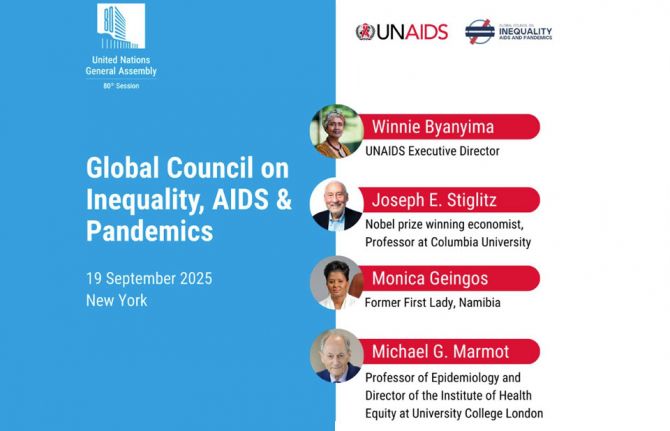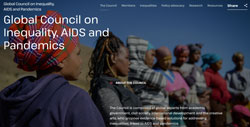

Feature Story
Ahead of UNGA, global experts investigate how inequalities are making the world more vulnerable to pandemics
22 September 2025
22 September 2025 22 September 2025In advance of the UN General Assembly High-Level Meetings, a group of experts co-chaired by Nobel prize winning economist Joe Stiglitz, former First Lady of Namibia Monica Geingos, and Director of the Institute of Health Equity Sir Michael Marmot met to review how inequality gaps within and between countries are impacting global health security. Economists, public health experts, and current and former government leaders from around the world took part in the meeting of the Global Council on Inequality, AIDS and Pandemics.
The Council convened in New York at a time of growing concern that governance, economic, and social crises are undermining the world’s capacity to respond to current and future disease outbreaks. Council members will meet with world leaders gathered this week at the UNGA.
A synthesis of the findings gathered over two years by the Council will be published in November ahead of the G20. It will cover issues including the debt crisis, social determinants, access to pandemic products, and the struggling role of community organizations in the current global environment.
“Deepening inequalities are dangerous,” said UNAIDS Executive Director Winnie Byanyima, who convened the Council. “When we set up this Council two years ago, it was with a clear vision: to collect the evidence, advocate for the policies, and secure the action needed to address the inequalities that make disease outbreaks more frequent, that accelerate the spread of disease and that intensify and prolong the impacts of pandemics.”
“When global rules leave some countries unable to protect their populations from current or future pandemics, that does not only endanger people in those countries, it endangers people in all countries,” said Joe Stiglitz.
“The need to tackle inequalities worldwide is not only a moral responsibility. It is essential for ensuring a safe and secure world. Tackling inequality, protecting everyone’s rights, is in everyone’s interests,” said Monica Geingos.
“None of the inequalities that threaten public health are immutable. They can all be tackled through proven policies and investments. Inequalities can be overcome if leaders follow the evidence,” said Michael Marmot.
Find out more about the work of the Global Council on Inequality, AIDS, and Pandemics at https://www.inequalitycouncil.org

